Undocumented workers built Florida's roads -- and died in the process
Published in News & Features
TAMPA, Fla. -- While most of Miami slept, two construction workers climbed into a trench in the center of a 12-lane highway.
The earth was damp from a February rainstorm the day before, making it quick to crumble. Someone should’ve noted the danger before the workers stepped inside, safety protocols say. But their employer — a company called Archer Western, paid by Florida taxpayers — failed to do so.
The men got to work removing a pipe, prying at an obstructing rock with a pick. Almost instantly, the trench collapsed — bringing with it a 30,000-pound concrete wall.
It crushed their organs and split their spines in two. They were dead before the police arrived.
Their deaths were preventable, federal regulators determined. The barrier wall should’ve been supported. The men should’ve had better training.
These failures weren’t isolated. For years, Archer Western workers died on the job at a rate experts said should have raised alarm in Tallahassee. State officials knew about at least two of the deaths, records show — and alleged in court that the company’s negligence was to blame for one of them. Even still, under Gov. Ron DeSantis, the state transportation agency has awarded Atlanta-based Archer Western and its partners nearly $1.6 billion in contracts, one of just a handful of firms to make that much.
Eight Archer Western workers died from 2016 to 2023 — all but one on projects for the state of Florida. The deaths accumulated here, even though the company operates nationwide.
Compared to other companies in the dangerous business of construction, Archer Western employees died more than twice the industry average, the Tampa Bay Times has found.
Workers were crushed by heavy equipment, hit by cars, drowned after falling off a barge.
At least three victims were undocumented, including the two men killed that night in Miami in 2018. Both Osman Aldubin Montalvan-Ardon and Abel Orlando Zuniga-Fajardo were originally from Honduras.
Montalvan-Ardon’s family was rattled awake at 3 a.m. when a fellow construction worker delivered the news.
His girlfriend and toddler son, both back in Honduras, had been able to buy a house for the first time with wages he’d sent home.
This time, it was his body that was delivered. He was 33.
More than four years later, Archer Western would be thrust into the public spotlight when a Pinellas sheriff’s deputy died on a different state-funded construction site, after another undocumented worker accidentally hit him with heavy machinery. DeSantis would reference Deputy Michael Hartwick’s death on the campaign trail as proof of the dangers of unchecked immigration. Law enforcement launched an investigation into the company’s hiring practices, a probe that remains ongoing.
Yet at a time when DeSantis and other state leaders have hammered the message that immigrants without legal status pose threats to American citizens, the state has relied on undocumented laborers for some of its biggest road projects — and put them at risk in the process.
Archer Western reported the equivalent of about 4,000 full-time employees per year nationally. It’s unclear how many people who lack proper documentation have worked on the company’s Florida projects. But an investigator testified in court proceedings that it could be more than 100. The workers who died were both undocumented migrants and American citizens.
To evaluate the firm’s safety record, the Times analyzed eight years of federal injury data. Reporters consulted experts and former safety inspectors, compared the firm to its competitors, and reviewed more than 1,000 emails between company and state officials.
Five safety experts told the Times that Archer Western’s record was appalling.
Richard Gleason, a former inspector for both the Occupational Safety and Health Administration and the equivalent state-run agency in Washington, called the fatality figures “unbelievable.”
Diana Cortez, a former OSHA area director in New York who’s now a workplace safety consultant, called the deaths “an extremely red flag” that should have triggered concern among state officials.
“Why they are hiring a contractor with this history, I have no idea,” she said.
Archer Western didn’t answer specific questions from the Times. But in a statement, the company said it deeply regrets the eight employee deaths and that its safety culture has “continuously improved” over the last decade. Instructors accredited by the Board of Certified Safety Professionals provide bilingual training to its workers, the company said. The company also pointed to its non-fatal injury rate, which is less than half the industry average.
“Safety is a foundational value at Archer Western,” the company said. “We work closely with OSHA, federal and state agencies, and our project partners to ensure that all safety regulations and protocols are properly followed.”
The company noted that three of its deaths in this period were caused by people driving into work zones and hitting employees, a hazard for a major road construction firm like Archer Western. OSHA ruled those deaths as accidents, which is typical for car crashes.
Some safety research, though, has found that federal investigations could do more to examine why road-building companies didn’t effectively shield their workers from drivers in other cases like these.
Florida officials, including DeSantis, have consistently defended the state’s relationship with Archer Western, saying the company followed the correct procedures to check if its hires could legally work in the U.S., using a computer search tool called E-Verify.
The Florida Department of Transportation did not answer specific questions from the Times asking how state officials background-check companies or monitor deaths on state-funded construction sites. All workplace fatalities are required to be reported to OSHA, and the agency displays those incidents on an online, public database.
In a statement, agency spokesperson Michael Williams said the state holds its contractors to all applicable safety standards.
“FDOT takes safety and construction incidents very seriously and every level of leadership is actively engaged, including our top leadership, who hold contractors accountable and ensure full cooperation with law enforcement, industry partners, and regulatory or investigative agencies like OSHA,” Williams said.
The governor’s office did not respond to an emailed list of questions and multiple follow-up messages sent by email and text.
David Michaels, who led OSHA during the Obama administration and is on the faculty at George Washington University, said even one fatality should prompt a company to reevaluate its procedures. Eight deaths in as many years, he said, point to systemic breakdowns.
“It’s certainly hypocritical for a state government to announce they want to crack down on undocumented workers but are willing to turn a blind eye to state contractors,” he said.
Half the company’s deaths in this period resulted in OSHA citations, records show, as regulators dinged the company for a list of equipment and training failures. Workers lacked enough instruction on the dangers of their jobs, regulators found, stood too close to an operating crane and needed more walkways between barges on the water.
Still, the total fines levied on the company after these deaths added up to less than $85,000, an amount smaller than what the state often pays Archer Western in a week.
Two months after Montalvan-Ardon and Zuniga-Fajardo’s deaths in Miami, Archer Western joined with a partner company to submit another bid to state officials. The firms asked for more than $450 million to work on Interstate 95 near Fort Lauderdale, a different stretch of the same highway where the pair was crushed to death weeks earlier. Other companies submitted bids, too.
The state picked Archer Western.
Who is Archer Western?
Archer Western, a general contractor and construction firm with a specialty in public infrastructure projects, is a subsidiary of the Chicago-based Walsh Group. Unlike other parts of the Walsh company, Archer Western employs non-unionized labor.
The eight deaths — and the investigations that they triggered — would leave a paper trail indicating that Archer Western’s ranks included many employees who lacked legal documents to be in the United States.
In the decade prior to 2018, the company only had one death on the job, according to OSHA. A truck slammed into an Archer Western pickup on a Daytona Beach highway shoulder in 2016.
Then in 2018 alone, four workers died — accelerating a period in which the company’s safety record grew more alarming with each employee’s visit to a hospital or morgue. Serious injuries also began stacking up.
In this eight-year stretch, 21 workers sustained severe injuries, most of them in Florida.
A Tampa worker’s skull was fractured when his head got pinched between two pieces of equipment. An employee fell from scaffolding in an elevator shaft at Tampa International Airport, puncturing his lung and resulting in an OSHA citation. A man was pinned inside a pipe 6 feet underground in Texas, cracking his nose and knocking out teeth. Four separate times, workers had to have their fingers amputated.
Months after the two men were killed in the Miami trench in early 2018, Stanley Cooper was working on a bridge project in Jacksonville when detectives believe he stepped outside on a barge to cool off. Cooper, 51, was a longtime construction worker from East Palatka, near St. Augustine.
After exiting a “poorly ventilated room” where he worked, investigators wrote, he took off his shirt and life vest. Then he fell between two barges into the St. Johns River.
Cooper didn’t know how to swim. After hearing his screams, co-workers tried to toss him life preservers, but he slipped under the water.
OSHA fined the company $9,282. The citation says it failed to provide a safe walkway from a barge.
In statements to the Times, Archer Western argued that this OSHA citation was not actually the result of Cooper’s death, saying the fine was for “a condition on the jobsite unrelated to the fatal accident.”
Around the same time, Archer Western employees worked on constructing the Gateway Expressway, a series of toll roads connected to Interstate 275 in Pinellas County. Five workers were severely injured on that site alone, as falls and tumbling equipment broke bones.
Workers without legal status are at a higher risk of getting hurt on the job, research shows, in part because they take riskier jobs and work longer hours. Language barriers also play a role, plus migrant workers may have lower expectations for protective equipment if they came from countries where that isn’t the norm, said Cortez, the former New York-area OSHA director.
Additionally, labor experts say, these workers can be reluctant to report problems or even to go to the hospital if they get hurt. That can lead to underreporting of injuries to federal regulators.
“The employee wants the job and will not complain, and the reason they won’t complain is, No. 1, a fear of being deported,” Cortez said. “No. 2, they need the money to survive and to support their families.”
These issues make the fatality rate a more reliable metric of a company’s safety history than its non-fatal injuries, experts told the Times — which is why even with its low injury rate, Archer Western’s record stands out.
In October 2021, tragedy struck again at the Gateway Expressway site: Lonin Obando was pinned against a wall and crushed to death by an 18,500-pound concrete pillar hanging from a crane.
It was his second day on the job.
OSHA would classify his death as preventable, saying in a news release that the company and its partner on the project failed to meet their obligations to employees. Regulators found that the wire rope holding the pillar had been damaged, and workers had not been sufficiently trained. They stayed too close to the operating machinery, which went against the crane manufacturer’s procedures.
When Pinellas Park police investigated, they struggled to confirm the dead man’s identity until his girlfriend arrived at the hospital and told officers he had been working under a false name. He was an undocumented worker from Nicaragua.
Officers then notified federal immigration authorities that Archer Western was hiring workers without legal status, the Times previously reported. It’s unclear what Immigration and Customs Enforcement did with this information, and the Pinellas Park police never heard back after the initial tip.
Obando’s family sued the company over his death, one of several lawsuits brought against Archer Western by deceased workers’ relatives.
In that case, Archer Western argued in court that because Obando lacked legal status, the company shouldn’t have to pay his family, saying he gained his job “under false pretenses.” The case is still ongoing.
Despite attempts from the Times to speak with deceased workers’ families — made by phone, email, text, social media messages, letters and knocks at the door — none agreed to be interviewed for this story. One family said the topic was still too painful, while another cited deportation concerns. Others, outside the U.S., could not be reached.
What the state of Florida knew
The company has been hired for taxpayer-funded construction projects by the state of Florida for two decades, records show. Its contracts total more than $5 billion.
The same year Archer Western’s deaths hit their peak in 2018, DeSantis won the race for Florida governor, buoyed by a tough-on-immigration platform that earned him Donald Trump’s endorsement.
As the DeSantis administration continued to pay the company millions, the state was aware of at least two of the worker deaths — because it had to answer for them in court.
In a lawsuit brought against the company and state by the family of one of the workers killed in the Miami trench, the Florida Department of Transportation argued that Archer Western bore all responsibility. The company ignored warnings from engineers about the dangers of the unsupported concrete wall, the state’s filing alleged.
The transportation department went further, arguing the state shouldn’t be subject to the grieving family’s lawsuit because the worker’s death “resulted entirely from the negligent and/or intentional acts of Archer (Western).”
“Archer … had exclusive control of and responsibility for its employee, Abel Orlando Zuniga-Fajardo’s, safety and actions,” they wrote in 2021.
That same year, local police reported Archer Western to federal immigration authorities after learning Obando had been here illegally.
Williams, the state transportation agency spokesperson, previously told the Times that the department was “unable to confirm what communication may have transpired at that point in time” about the company getting reported to the feds.
“Law enforcement and federal agencies would have coordinated directly with the contractor,” Williams added.
Under DeSantis, the state has undertaken the most expensive bridge project in Florida history: the new span of the Howard Frankland across Tampa Bay.
It was an $865 million opportunity to construct a landmark that carries thousands of commuters per day over sparkling waters.
By the time Archer Western bid on the project, five of its workers had died in less than three years.
But the price estimate it submitted to the state for the Howard Frankland, along with its partner company, came in at $86 million under their closest competitor, records show, shaving 9% off the cost. The state awarded the contract to them in 2020.
State rules say that a company bidding on projects can be disqualified if it allows unsafe work conditions.
Ahmed Al-Bayati, an OSHA-authorized trainer and construction safety researcher at Lawrence Technological University in Michigan, said he believed those rules should have applied to Archer Western.
“They’re allowing unsafe conditions,” he said after reviewing the company’s safety history. “They should not be allowed to do the work until they show some evidence they have fixed their safety culture.”
It doesn’t appear that Florida has disqualified a transportation contractor for safety reasons in the last decade. The Florida Department of Transportation said no records exist of actions under this rule for the past nine years.
The state also doesn’t ask questions about a company’s safety record when executives start the bidding process on government contracts for large road or bridge projects, records show. The initial application asks about a company’s financials and its history of completing the projects assigned to it.
Al-Bayati said the exclusion of safety criteria is “shameful” but common nationwide.
Archer Western won more than state contracts. Florida officials also gave the company awards.
Every year, the state collaborates with the Florida Transportation Builders Association, a powerful Tallahassee lobbying group representing companies like Archer Western, to pick out “Best in Construction” winners. The honorees are recognized at the annual builders’ convention, often held at a luxury resort.
One recent conference agenda shows attendees could tack a few hundred dollars onto their $1,000 registration to join a golf tournament or a deep-sea fishing trip. That year’s convention took place at The Boca Raton, a locale with a private beach where guests can spend more than $6,000 a night to stay in its grandest 2-bedroom suite.
In 2020, officials announced that Archer Western had won an award for the Miami interstate project. That’s where the two men were crushed by the barrier wall, bringing multiple OSHA violations.
Three years later, the state honored the company again with another glossy plaque.
It was for the Jacksonville bridge where Cooper had drowned.
Deputy’s death brings scrutiny
After years of tragedy on Archer Western construction sites, it was the September 2022 death of Hartwick, a 19-year veteran of the Pinellas County Sheriff’s Office, that prompted a reckoning.
The reports first came in by radio: Deputy down.
Hartwick, helping with nightly lane closures on the Gateway Expressway site, was hit by Juan Molina-Salles, who drove a heavy-duty loader. Within minutes, lights from every available patrol car pierced the darkness around the construction site on Interstate 275.
Hours later, at a news conference, Sheriff Bob Gualtieri would reveal that Molina-Salles was undocumented. The news struck a political nerve. The federal government launched its investigation.
How much the company knew about its workers’ immigration status is a central question of that probe. The Florida Department of Law Enforcement, a state agency, is helping federal authorities investigate.
From the Gateway Expressway site alone, 19 workers have been indicted on crimes related to using other people’s Social Security numbers to get hired, the federal government said. And the true number of employees here illegally could be much higher, according to a Florida Department of Law Enforcement special agent.
During an August trial for one of the undocumented workers, special agent Jeremy Fillie told a Tampa jury that there could be “over 100” instances of Archer Western workers using others’ identities. That’s a much larger scale than has been previously reported.
Another trial witness named Karen Rahlf, an auditor from the U.S. Department of Homeland Security, testified that the ID used by one of the indicted workers looked “nothing like what the genuine cards look like.” The design was all wrong, using simplistic blue rectangles instead of a pastel graphic of the North Carolina Statehouse. The person’s name was barely legible. The ID number had the wrong number of digits.
At least two other Archer Western workers, including the man who hit Hartwick, submitted fake IDs that had a similar appearance.
It’s unclear when or how the investigation will conclude. Officials have declined to provide details about its status.
As the state faced pressure about its contractor’s use of undocumented labor after Hartwick’s death, the Florida Department of Transportation pledged to conduct “an internal review” of its multimillion-dollar contract with Archer Western. But the probe was cursory, the Times found. It consisted entirely of the state asking Archer Western for the two pages that showed that Molina-Salles and another man charged in connection with Hartwick’s death had passed E-Verify.
The state had already known the men had cleared the system when it promised to conduct the review, according to public statements made by an agency spokesperson at the time.
Hartwick’s death did not create a wedge between the state and Archer Western, emails show. Instead, officials coordinated closely on public messaging.
The day after the incident, state employees from the Transportation Department and the governor’s office drafted a public statement. Within minutes of finalizing it, transportation officials sent the statement to Archer Western, emails show. Weeks later, when a reporter sent follow-up questions, company officials discussed their response with the state.
The company and the state also discussed when Archer Western would be able to resume construction after Hartwick’s death. Eight days after the incident, Archer Western emailed the state, complaining that the pause in its work posed “a significant financial impact.”
After some back-and-forth where the state asked the company to provide more details about its safety training, an Archer Western official wrote that if the state was worried about negative news coverage, it seemed to be blowing over.
“PCSO (The Pinellas County Sheriff’s Office) has been the primary vocal entity regarding the incident, however they are willing to resume work on the project,” wrote company program manager Greg Fullington. “Since they are willing to provide officers to the project, I don’t see a concern about them making further statements in the media if that is what is driving the direction of no production work.”
When asked about these exchanges, Williams, the Florida Department of Transportation spokesperson, defended the relationship.
“To imply wrongdoing by any FDOT official for doing their job by communicating with a contractor, especially on such an important issue as safety, is simply inaccurate and pushes a false narrative,” he said.
Archer Western resumed work weeks after the incident and has continued constructing state projects like the Gateway Expressway and the new Howard Frankland Bridge ever since. Its last death was in 2023.
Since Hartwick’s death, records show the state has written checks to Archer Western and its partners totaling more than $200 million. Last month, the Tampa Hillsborough Expressway Authority, whose board has four members appointed by DeSantis, awarded a $362 million contract to Archer Western to improve the Lee Roy Selmon Expressway.
Despite the federal investigation, DeSantis has already opined on who he thinks should shoulder the blame. After questions from a Times reporter earlier this year, the governor said that Archer Western was a victim of an “interstate fraud ring” of people who created fake IDs to pass citizenship verification screenings.
“It’s not a business’s fault,” DeSantis said. “If someone has bona fide documents and they pass it, I can’t blame the business at that point.”
Construction workers get prison sentences
The federal investigation so far has brought uneven consequences. Law enforcement continues to dig into what company leaders knew. The only employees who’ve faced charges are the construction workers on the lowest rungs of the corporate ladder, for using names and Social Security numbers that weren’t theirs.
The Times observed two sentencing hearings and one jury trial for three former Archer Western workers at the Tampa federal courthouse this year.
On two separate days during the spring, the former employees shuffled before judges. Clad in orange jumpsuits, chains jangled between their ankles.
Family members sat in the audience, offering sad smiles and waves. One toddler clutched a stuffed yellow Minion cartoon character as he waited for his dad to be sentenced.
Months later, another family endured the same agonizing wait, as a jury deliberated the verdict for another former worker charged with aggravated identity theft.
All had used the names and Social Security numbers of real Americans, which carries a stiffer penalty than just making one up. But unlike many cases with this charge, the former construction workers did not rack up credit card debt or otherwise financially hurt the people whose identities they’d used, their lawyers said. They only wanted jobs to leave their former lives behind.
Duglas Hernandez Valladares grew up walking barefoot to school through dangerous parts of town in Honduras. He came to work in the U.S., court records said, so that he could afford glasses and care for his 12-year-old daughter, whose vision is slipping from a medical condition.
Allan Oseas Gomez-Zelaya, also from Honduras, had to quit school in sixth grade to help provide for his family.
They assisted with the investigation enough for their year and a half behind bars to suffice, the judges ruled. Spanish interpreters explained their fates to the men through headphones. They would be deported.
Some of their co-workers got longer sentences. Two are serving time in federal prisons in Florida or Louisiana for as long as two years. Many others are awaiting trials.
In late August, the jury finished deliberating in the case of Sindi Yamileth Mejia Avila, 23. After she’d used a stolen Social Security number to get the job, a manager had started asking questions about her identification, so she bailed before her first paycheck. But she’d lied on a form about her name and immigration status, giving the government enough evidence to prosecute.
As he sat in the courtroom pews, Jorge Casal, Avila’s brother-in-law, couldn’t stop thinking about his 6-year-old niece, who would have to learn to live without her mother while attending first grade in Plant City.
Casal doubts Avila knew what she was doing was illegal, he said, because she was young and was copying the behavior of her co-workers.
When the jury read the guilty verdict, his eyes filled with tears while he held his head in his hands. She’ll likely spend at least two years in prison before being deported to Guatemala, a country she left as a child.
“She is not a criminal. She’s a hardworking mother,” Casal said. “She does everything she can for her kid here.”
The day her trial began, the DeSantis administration cut a check as part of its regular payments to Archer Western.
It was worth almost $1 million.
***
Times staff writers Justin Garcia and Juan Carlos Chavez contributed to this report.
Methodology: The Times identified workers who died by reviewing hundreds of pages of police files, autopsy records, workplace inspections, court filings and local news articles. Reporters determined the immigration status of workers using federal records only available after a person’s death, as well as interviewing family members.
Injury and fatality rates were calculated using data on incidents and hours worked reported in OSHA’s Injury Tracking Application data. Those were compared to industry-wide rates from the Bureau of Labor Statistics Survey of Occupational Injuries and Illnesses. In each case, fatality incidence rates are calculated as the number of cases in a time period per 200,000,000 hours worked.
Additional Credits
EDITORS: Justine Griffin, Rebecca Woolington, Mark Katches
PROJECT MANAGER: Justine Griffin
PHOTOGRAPHERS: Dirk Shadd, Douglas R. Clifford, Martha Asencio-Rhine
PHOTO EDITOR: Martha Asencio-Rhine
ILLUSTRATION: Sean Kristoff-Jones
PRINT DESIGN: Sean Kristoff-Jones
DIGITAL DESIGN: Justinian Hatfield
COPY EDITOR: Amy Gehrt
ENGAGEMENT: Kelsey Harrell, Neha Seenarine, Justin Seecharan
©2025 Tampa Bay Times. Visit tampabay.com. Distributed by Tribune Content Agency, LLC. ©2025 Tampa Bay Times. Visit at tampabay.com. Distributed by Tribune Content Agency, LLC.
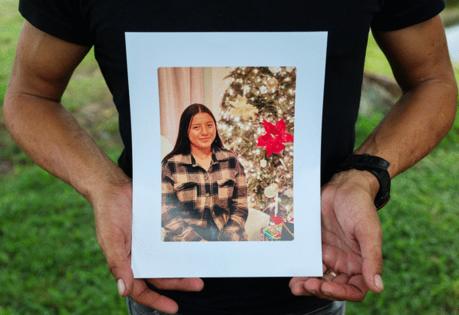
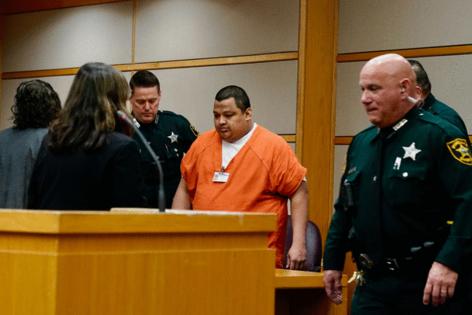
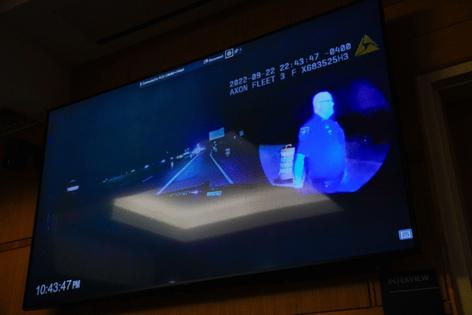
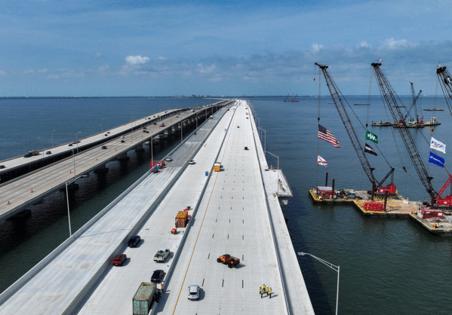
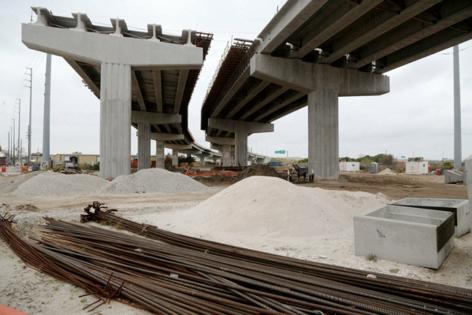











Comments